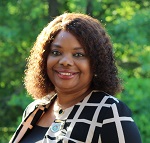BY MELANIE A. PRINCE, RN, BSN, MSN, NE-BC, CCM, FCM, FAAN
It has been an honor to contribute to the CMSA Today President’s Column as president (2020 – 2022) and immediate past president (2022 – 2023). This issue focuses on the topic of behavioral and mental health, and my message is one of deep personal reflection about how I attend to my mental health and wellness. I recently shared a concern with a close friend about my inconsistent physical wellness regimen due to an orthopedic injury. But I was pleased to note the consistency with my mental wellness regimen, and, as a result, I am able to cope with the challenges of reduced physical activity. My mental wellness regimen originates from the perspective of a wellness continuum and is grounded in mindset, “mattering” and spirituality.
As a case manager, the framework in which I supported patient/client care was Dr. John Travis’s Illness to Wellness Continuum, developed in 1972. Chowdhury (2019) re-introduces Travis’s Illness–Wellness Continuum and highlights three key concepts of well-being:
- Wellness is a process; it is always moving up and down, right, and left. Moving from one paradigm to another does not signify personal achievement or shortcoming; it is a natural process we all go through at some point in life.
- Presence of illness does not imply the absence of wellness and vice versa. They differ in degree and do not follow an all-or-none principle.
- At any point, we have the potential to push ourselves from illness to wellness.
This continuum was front and center in my case management practice. New cases were opened when my military patients/clients were in their most seriously ill or injured state, and the goal was to facilitate their movement toward the Wellness side of the Illness/Wellness continuum. I view my personal mental health in the same way…as a continuum. Delphis is an organization out of the United Kingdom that produces courses in wellness topics, and their website has one of the best descriptions of how I approach my personal business of mental health. While this is not an endorsement by me, the Case Management Society of America or Parthenon Management Group, explore the website to learn more about The Mental Health Continuum Zones of Excelling, Thriving, Surviving, Struggling and In Crisis. See Figure 1 for a visual representation of the model.
How do I incorporate this continuum in my daily life? I practice deep reflections and assess where my mental health meter is set or possibly fluctuating. This honest self-reflection fires up my mindset engines and I focus on realizing a growth mindset. Primeau (2023) described mindset as the way in which we see the world and ourselves. Mindset is one’s personal perspective about life and the situations one encounters. Mindset affects our ability to be resilient, manage stress and grow. Specifically, a growth mindset (as opposed to a fixed mindset) inspires the internal belief that one can learn and evolve from any situation or challenge. It is a way to view the world as a perpetual classroom of lessons, opportunities and options.
An extension of my growth mindset is the deliberate exercise of identifying and prioritizing what matters the most in any given moment. “Mattering” varies, and it may sometimes be unconventional, and that is OK. For example, when I have multiple stressors that may affect my sleep patterns, I will drive 30 minutes to inhale the salty air, listen to the sounds of the waves and appreciate the vastness of the Chesapeake Bay. It does not matter the time of day or night, or the weather conditions. Being near water centers me and creates space for thought, mindfulness, logic, freedom of expression. We often refer to locations or situations like this as “our happy place.” Visit them often! But most importantly, “mattering” reminds me of gratefulness, and gratefulness translates into my personal spirituality.
Spirituality is personal to each of us. A core part of my spirituality is an attitude of gratitude. Gratitude is embedded in my growth mindset because I appreciate the challenges, opportunities and options to be a better person for myself, family, friends, colleagues and the community at large. I surround myself with positivity, but even when there is negative energy, I challenge myself to transform a bad situation into a good one. This is what keeps me in a state of mental wellness and on a growth path. Of course, there are moments when it feels better to scream into the wind, bake three dozen cookies in one night or play your favorite song at the loudest possible volume. That is OK, too, because all of us have a need to “just release.”
Understanding the continuum of mental health and recognizing the flags that may indicate slippage toward crisis requires one to “know thyself.” Self-reflection is one way to incorporate a routine assessment of “where you are” mentally. For me, seeing the world and the things/people that matters the most…from a growth mindset…inspires a sense of gratitude for the opportunity to be a healthy contributor to our society. This is how I mind my mental health business. How do you practice mental health wellness in your daily life? As you read this outstanding collection of articles and information about behavioral and mental health, reflect on your personal and/or professional life; then consider sharing your stories on the CMSA Blog! It has been an honor and pleasure to serve on the CMSA National Board these past four years. Thank you, and I hope to see you at the annual conference in Las Vegas! Let’s do this!
—Melanie
References
Chowdhury, M. (2019). What is the mental health continuum model? Positive Psychology.Com, Retrieved May, 2023. https://positivepsychology.com/mental-health-continuum-model/
Delphis (2020). The mental health continuum is a better model for mental health. Delphis Learning. Online Source Retrieved May, 2023. https://delphis.org.uk/mental-health/continuum-mental-health/
Primeau, M. (2023). Your powerful, changeable mindset. Stanford Report. Stanford University. Online Source Retrieved May, 2023. https://news.stanford.edu/report/2021/09/15/mindsets-clearing-lens-life/
Melanie A. Prince, RN, BSN, MSN, NE-BC, CCM, FCM, FAAN, is the immediate past president of Case Management Society of America (CMSA), 2020 – 2022. She is a retired a ctive-duty military colonel who was assigned to Headquarters Air Force, where she was responsible for developing strategies to eliminate interpersonal violence in the military. Melanie is now the chief executive officer, Care Associates Consulting and MAPyourWAY, LLC. A distinguished leader and mentor in her profession, she has won numerous awards, including the distinguished CMSA Chapter2003 and National Case Manager of the Year 2004. Melanie is a CMSA Case Management Fellow (FCM) and Fellow American Academy of Nursing (FAAN).
ctive-duty military colonel who was assigned to Headquarters Air Force, where she was responsible for developing strategies to eliminate interpersonal violence in the military. Melanie is now the chief executive officer, Care Associates Consulting and MAPyourWAY, LLC. A distinguished leader and mentor in her profession, she has won numerous awards, including the distinguished CMSA Chapter2003 and National Case Manager of the Year 2004. Melanie is a CMSA Case Management Fellow (FCM) and Fellow American Academy of Nursing (FAAN).
IMAGE CREDIT: ISTOCK.COM/PRIMIPIL




